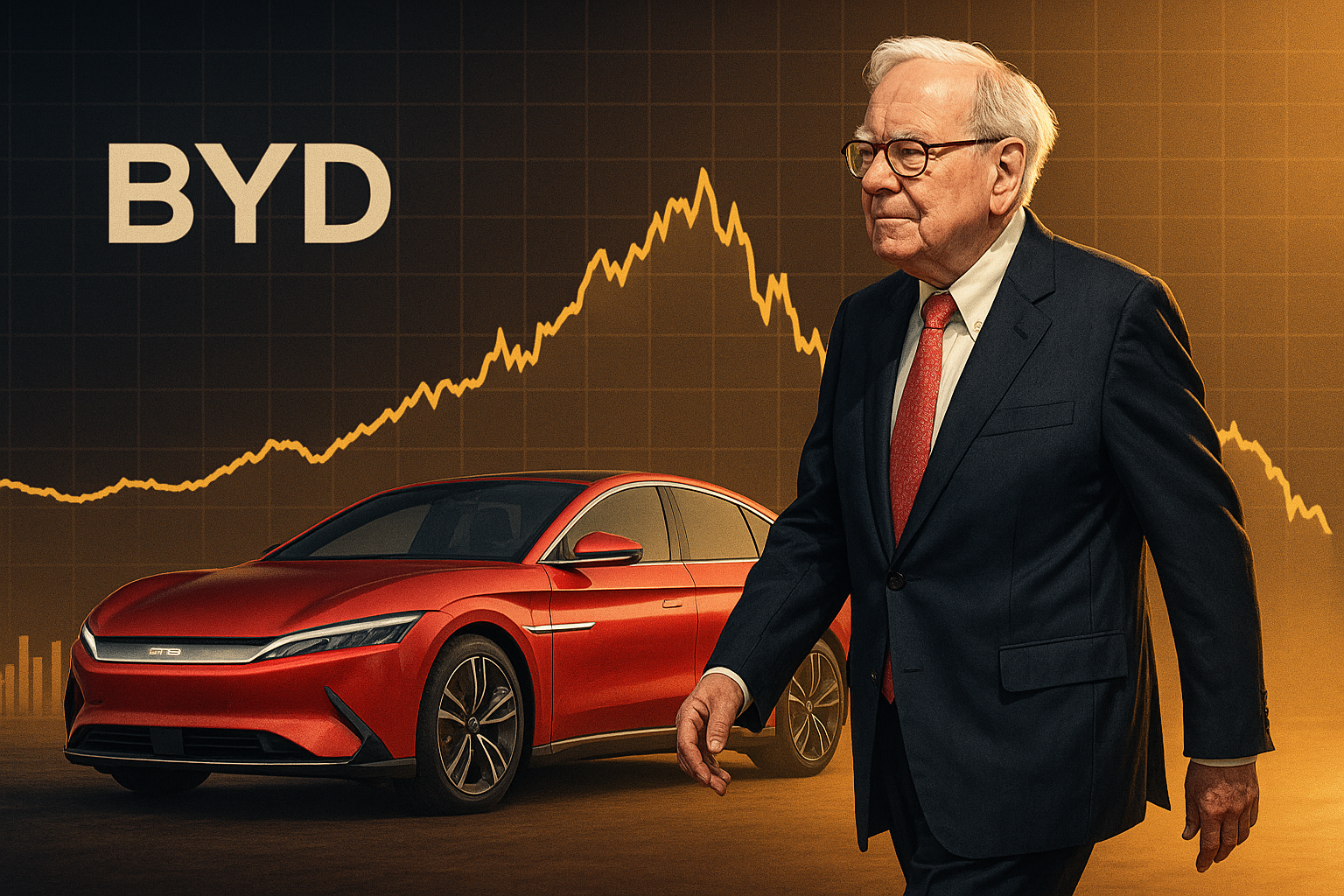The end of a historic investment sparks debate on short-termism and the future of the electric vehicle industry
The financial world was shaken when Warren Buffett, through his holding company Berkshire Hathaway, announced the complete sale of his stake in BYD, China’s largest electric vehicle manufacturer. The move officially closed a chapter that began back in 2008 and became one of the most successful bets of Buffett’s career, yielding a staggering profit close to 4,000%.
Despite the extraordinary return, the news triggered a sharp decline in BYD shares, underscoring the symbolic power of Buffett’s endorsement in global markets. Moreover, the decision reignited a long-standing debate on the dangers of short-term obsession with quarterly results, a topic Buffett has criticized throughout his career.
The unlikely bet of 2008
In 2008, the global financial crisis devastated markets. Traditional automakers such as General Motors and Ford struggled for survival, while the electric vehicle (EV) industry was considered highly speculative.
Amid this turmoil, Buffett — influenced by Charlie Munger and Chinese investor Li Lu — acquired about 10% of BYD for US$ 230 million.
The decision raised eyebrows. At the time, BYD was a little-known Chinese company with no global brand recognition. Yet Buffett saw two critical factors:
- Technological leadership in battery innovation;
- Managerial efficiency capable of scaling up production quickly.
This combination gave Buffett the confidence to make what would become a landmark investment.
BYD’s meteoric rise
The years that followed validated Buffett’s conviction.
- From 2010 to 2020, BYD became the undisputed EV leader in China, the world’s largest auto market.
- In 2022, the company surpassed Tesla in EV sales within China.
- BYD expanded into Europe, Latin America, and Southeast Asia, establishing plants, sales networks, and partnerships.
- It diversified into buses, trucks, batteries, and renewable energy solutions.
As a result, BYD’s market capitalization skyrocketed, turning Berkshire’s US$ 230 million into billions of dollars.
Gradual exit strategy
Beginning in 2022, Berkshire started reducing its stake in BYD, prompting speculation about Buffett’s long-term view. Each sale was carefully timed, sparking debate among analysts: was Buffett signaling doubt about BYD’s future or simply locking in profits?
The answer became clear in 2025 when Buffett announced he had completely exited BYD.
A historic profit
The numbers speak for themselves:
- Initial investment: US$ 230 million.
- Final value: around US$ 9 billion.
- Total return: nearly 4,000%.
This makes the BYD bet one of the most profitable investments in Berkshire Hathaway’s history, comparable to legendary positions in Coca-Cola, American Express, and Apple.
Market reaction
Paradoxically, the announcement caused BYD shares to tumble. Many investors interpreted Buffett’s departure as a loss of confidence in the company.
However, analysts argue the move was more about Berkshire’s strategic focus. The conglomerate historically prefers to concentrate on U.S.-based companies with clearer governance structures and regulatory frameworks.
READ MORE ABOUT THIS TOPIC
U.S. Judge Spares Google From Selling Chrome and Android but Requires Search Data Disclosure
Thus, while the exit spooked markets, it doesn’t necessarily imply a negative outlook for BYD.
The symbolic weight of Buffett’s endorsement
For nearly two decades, Berkshire’s presence in BYD’s shareholder base served as a stamp of credibility. Buffett’s support was often cited as proof of the company’s resilience and potential.
Now, with that endorsement gone, BYD must rely solely on its fundamentals to sustain investor confidence.
Still, the company remains a global leader in EVs, with robust expansion plans and technological prowess.
Buffett’s critique of short-termism
Alongside the announcement, Buffett reiterated his criticism of Wall Street’s obsession with quarterly earnings.
He argued that too many companies sacrifice long-term innovation and investment to satisfy short-term expectations from analysts and shareholders.
This philosophy is central to Buffett’s investing style:
- Buy for the long term;
- Avoid reacting to quarterly noise;
- Focus on fundamentals rather than speculation.
His 17-year commitment to BYD is itself proof of this mindset.
Implications for the EV industry
Buffett’s exit also sends ripples through the global electric vehicle industry.
The EV market is entering a new phase. Early hypergrowth has given way to fierce competition, with shrinking margins and overcapacity risks. While Tesla remains profitable, Chinese automakers like BYD, Nio, and XPeng are fighting to expand abroad.
Some see Buffett’s exit as an acknowledgment that easy gains are over, and the industry is now in a mature, highly competitive stage.
Lessons for investors
Buffett’s BYD saga offers important lessons:
- Patience pays — Holding for nearly two decades generated extraordinary returns.
- Diversification matters — Even with huge gains, BYD never dominated Berkshire’s portfolio.
- Know when to exit — Realizing profits is as crucial as entering the right time.
- Long-term focus wins — Ignoring quarterly noise allows investors to capture transformational value.
BYD’s future without Buffett
The big question is what happens next.
Strengths:
- Dominance in the Chinese EV market.
- Expanding footprint in international markets.
- Strong diversification into batteries and clean energy.
Challenges:
- Intensifying global competition.
- Dependence on Chinese government subsidies.
- The need to strengthen brand value abroad.
Without Buffett’s symbolic backing, BYD must prove it can thrive independently.
The end of Buffett’s stake in BYD closes a chapter of financial history. From a contrarian bet in 2008 to a nearly US$ 9 billion windfall, the investment demonstrates the power of long-term vision, patience, and discipline.
At the same time, it highlights the evolving challenges of the EV sector and the constant tension between short-term pressures and long-term growth strategies.
For investors worldwide, Buffett’s message is clear: great fortunes are built not in quarters, but in decades of conviction.

